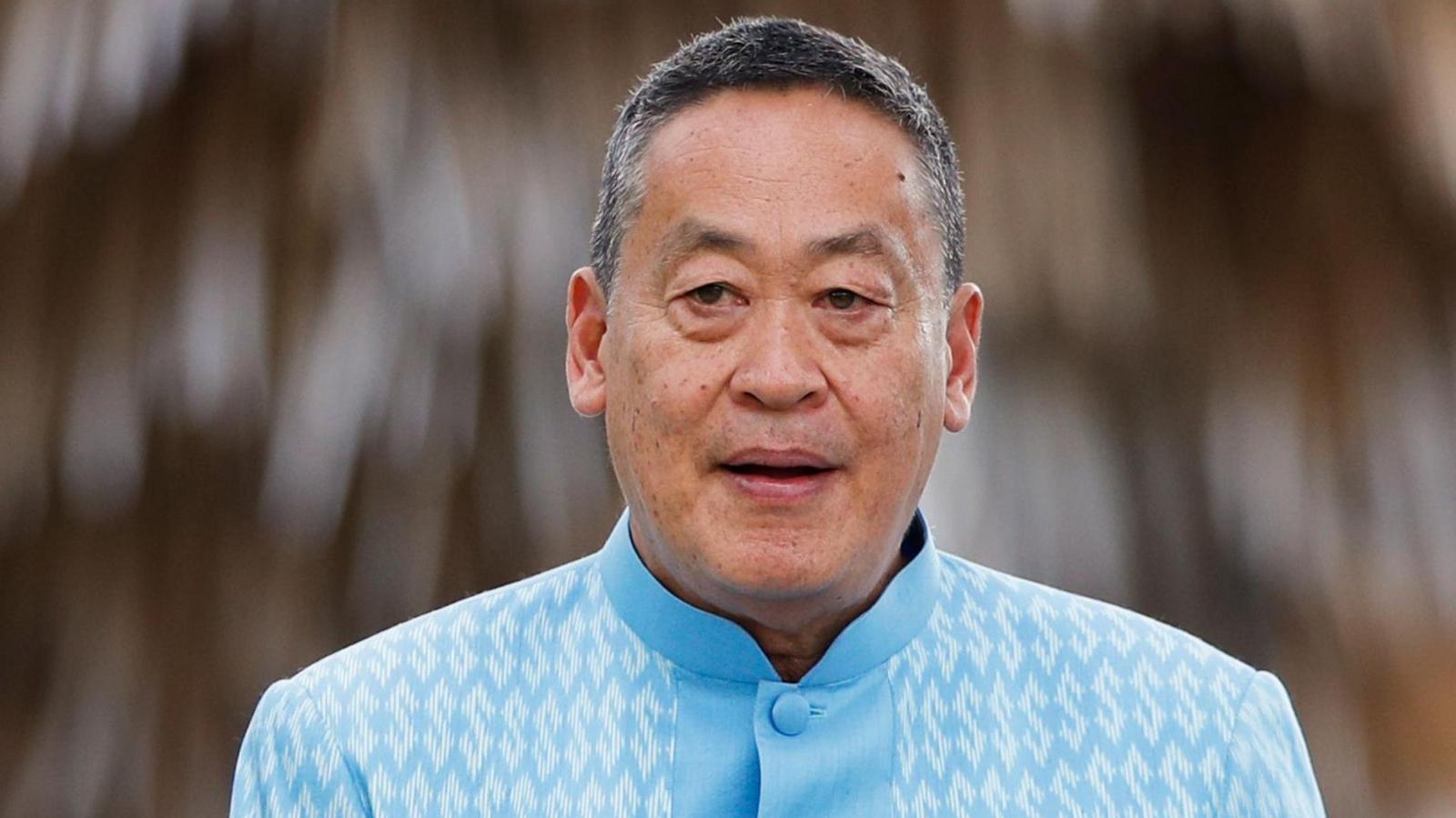Thai court dismisses PM for violating constitution

Srettha Thavisin only became PM last August
- Published
A Thai court has dismissed Prime Minister Srettha Thavisin for appointing to his cabinet a former lawyer who was once jailed.
The Constitutional Court ruled that Mr Srettha had violated the "rules on ethics" with "the display of defiant behaviour".
The 62-year-old Srettha, who has been in power for less than a year, is the third PM in 16 years to be removed by the same court.
He will be replaced by an interim leader until Thailand's parliament convenes to elect a new prime minister.
āIām confident in my honesty ā¦ I feel sorry, but Iām not saying I disagree with the ruling," he said at a press conference shortly after the ruling. The court's ruling is final and cannot be appealed.
Mr Srettha's dismissal means he has now gone the way of so many other parties and administrations in Thailand ā felled by the disproportionate power of the countryās constitutional court.
Politics in Thailand is not known for its ethics; bribery is commonplace and ministers with more serious convictions have been allowed to serve in the past.
Most people in Thailand will see this as a political verdict, though exactly who was pushing for it is not yet clear.
In May the court had accepted a petition filed by some 40 senators asking to remove the PM from his position over his appointment of Pichit Chuenban - who was previously sentenced to six months in jail for attempted bribery.
On Wednesday, five of the nine judges ruled that Mr Srettha had indeed violated the ethics of his office by appointing a lawyer who had a criminal conviction to his cabinet, despite him quitting after just 19 days.
The vote for a new prime minister will involve plenty of backroom bargaining, while Thailand struggles to revive its faltering economy.
Hopes that the country was now putting the political turmoil, including two military coups that have shaken it for the past two decades, have proved premature.
Mr Srettha became prime minister only last August, ending nine years of military-dominated governments in Thailand.
His appointment too was the result of a political bargain that froze out the young, reformist Move Forward party, which had won the most seats and votes in last year's general election.
It was a stunning victory that raised hopes for a fresh start for Thailand but Move Forward was blocked from forming the government by the military-appointed senate.
The election's second-biggest winner Pheu Thai then struck a deal with other conservative parties to form a ruling coalition without Move Forward - and Mr Srettha found himself at the helm.
Last week, the constitutional court dissolved the Move Forward party for making unconstitutional campaign promises and banned 11 party leaders from politics for 10 years.
Additional reporting by Thanyarat Doksone in Bangkok
Related topics
- Published15 May 2023
- Published23 August 2023